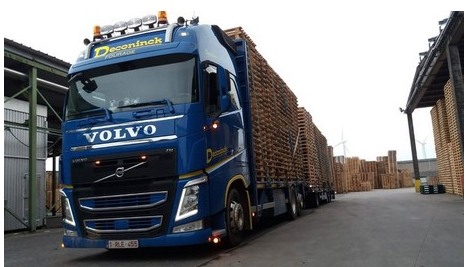Belgium's potatoes have all just about been grubbed up. "I think about 95% of the potatoes are out of the ground. Some big growers are still busy, but with the last potatoes," says Filip Deconinck of Deconinck Fourages. "The latest uprooted potatoes' quality has, however, seriously deteriorated. Wet rot is causing considerable problems. The potatoes that were grubbed up on time didn't suffer any damage. But it's still too early to say how things stand."

The chlorpropham ban came into effect this season. So, the sector has to switch to alternative products. "That changeover isn't easy. There is a shortage of one product. And the other alternative is almost unaffordable. We don't yet know whether there's a good product out there. The effects will only become clear next year."
"Distribution in storage warehouses is another challenge. It's not simple," adds Filip."The germ inhibitors that are still permitted are more difficult to use. In the same shed, different potato batches will receive more and others less germination inhibitor during storage. That depends on their size and soil presence on the last grubbed plots. We'll only see the effects after two to three months. Only then can say whether we've found a good alternative."
“Potato prices began to rise about six weeks ago. But, the second lockdown made these drop again. Market prices are between €25 and €30/ton. That's €100 below cost. An upturn in the market depends on COVID-19, but also storage. Before February, the market will remain as is. But I think it could go any which way after February. We, however, continue to hope for a good outcome," concludes Filip.
For more information:
Filip Deconinck
Deconinck Fourages
35 Vaart Street
8530, Harelbeke, Belgium
Tel: +32 (0) 475 718 732
Email: [email protected]
Website: www.deconinckfourages.be










